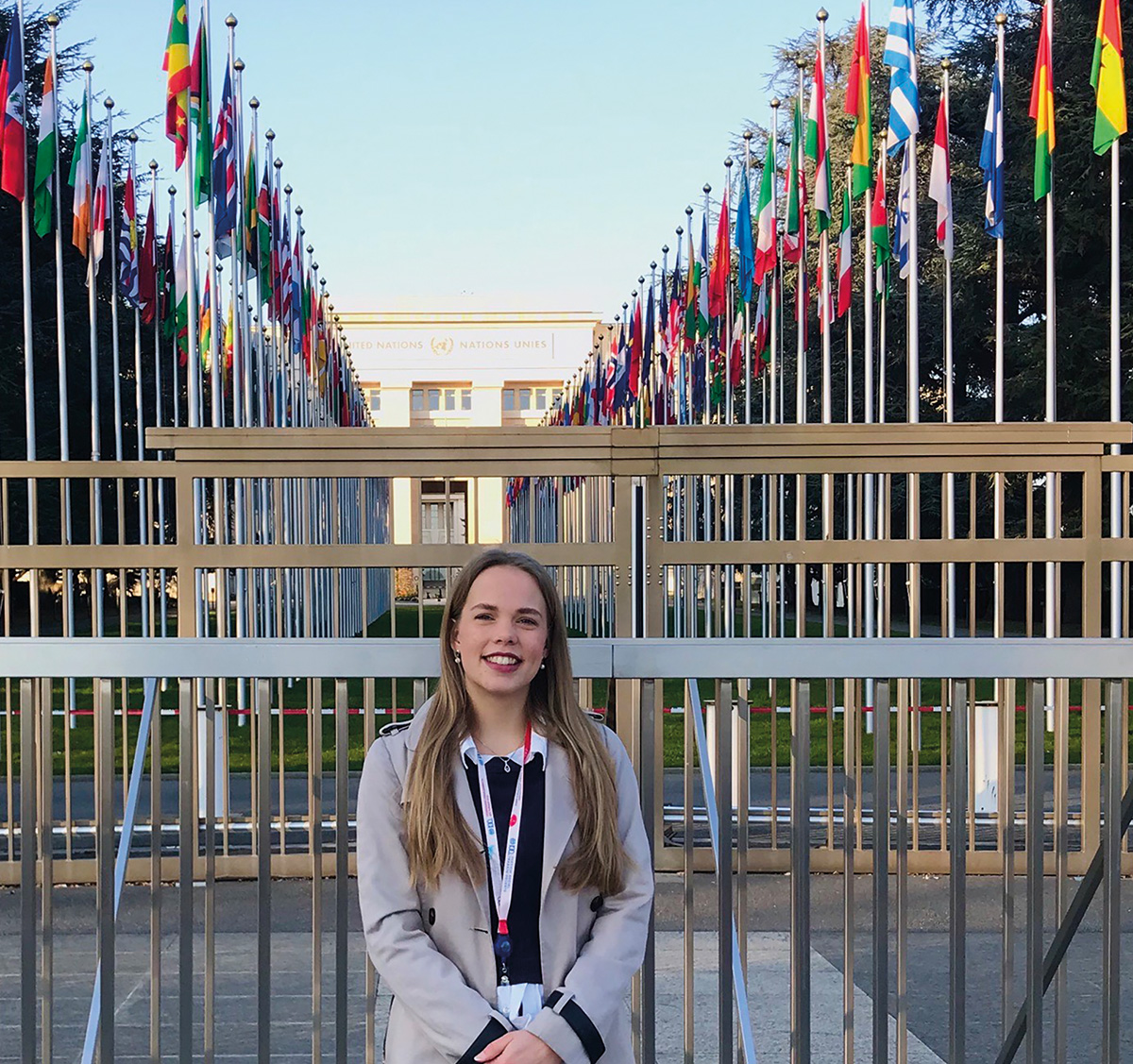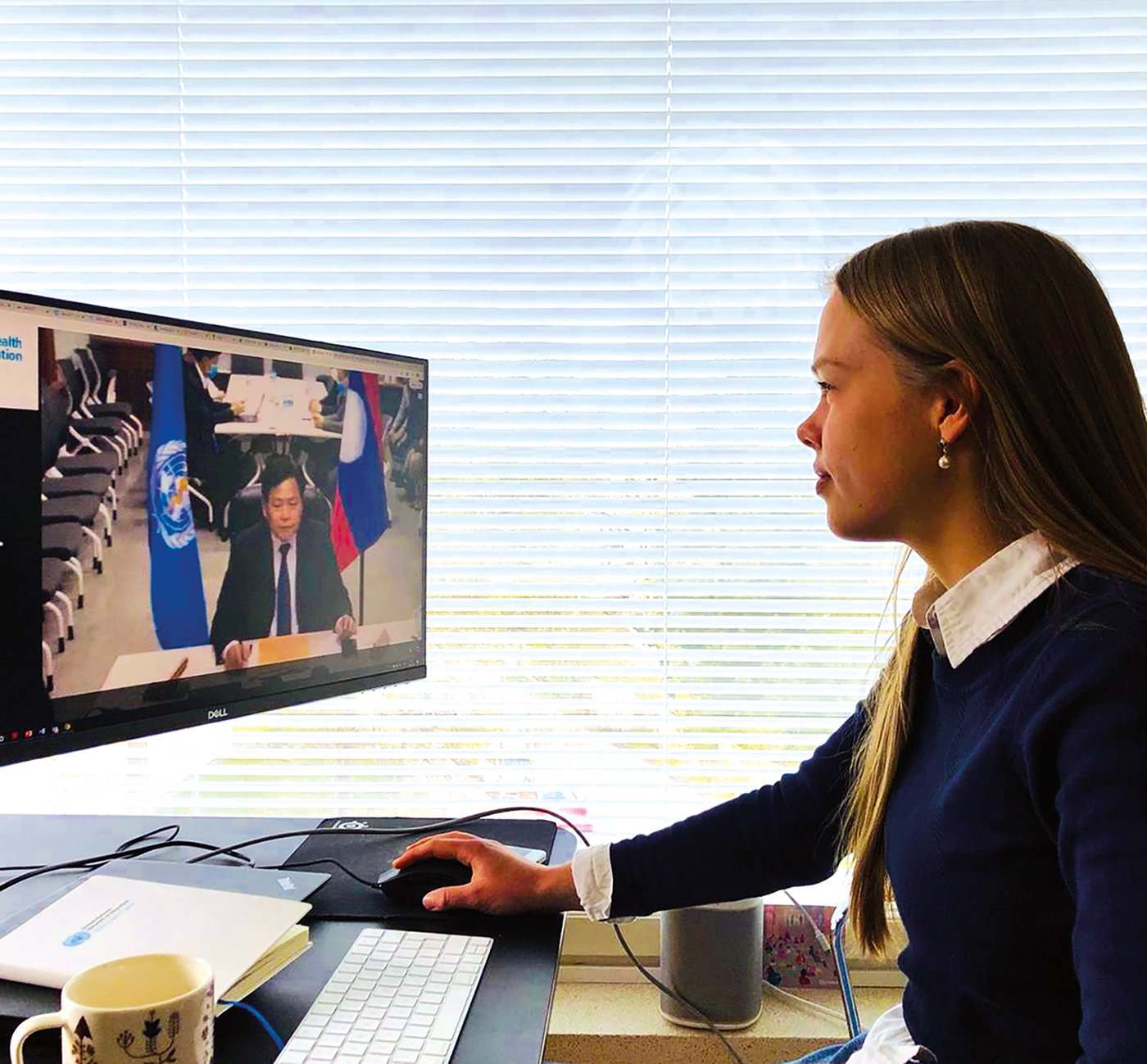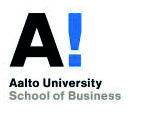
One CEMS student’s Master’s thesis on the future of work has opened the door to an opportunity to work for her country’s Permanent Mission to the UN and other international organisations in Geneva at a time when the future is being re-written.
Automatization, digital transformation, cloud technology, the move to mobile: most of us are familiar with these concepts – powerful macro-trends driven by tech innovation that are dynamically reshaping the future of work.
But how do these trends play out at the micro level? What is the real-life impact of digitalization on the individual and on the everyday lives of employees and workers?
Striving to find answers to these questions is Elina Mäkelä, who is pursuing her CEMS MSc at Aalto, Finland.
“I first got interested in the topic of the future of work and the impact of change on society as an undergraduate through the Global Shapers network which mobilises young people to become change agents via dialogue and discussion. Big questions were being asked here that were directly relevant to me and my cohort: how was work set to transform in the future and what kinds of skills would we need to develop to adapt and thrive in this changing reality.”
Elina’s undergraduate degree was in politics and international relations at Durham University in the UK. Coming back to her native Finland to focus on the business context at Aalto, she found an opportunity to explore these interests further – looking at these topics from an organisational perspective while investigating the broader societal implications. The result is a Master’s thesis that meshes a number of disciplines.

“I’m looking at how digital-enabled change is experienced at a micro level within the organisation both in terms of the work that people do, and also at how the cultural context mediates this experience. This touches on things like leadership paradigms and corporate culture.”
Fortunately for Elina, her Master’s focus dovetails with an existing research stream within Aalto. The Brave New HR research group’s Future of Work research programme aims to create a world class research hub of excellence on the future of work as well as to offer a platform for ongoing discussion bringing business leaders, policy-makers, think-tanks and researchers together. Writing her thesis under the supervision of the Research Programme Director has meant that Elina has had access to a rich data set of around 30 interviews with leading white collar organisations across Finland – a “birds eye view,” she says, of how HR leaders working in the current environment are witnessing and experiencing the impact of change. And some interesting findings are beginning to emerge.
“I was able to use a methodological tool borrowed from grounded theory – a more systematic methodology – to start to analyse the data which has been generating some really interesting results. In tandem, I’ve been able to create a conceptual model that aims to capture the way that digital change is manifesting in the workplace. Typically, when we think of levels we think of macro flowing to meso flowing to micro or vice versa. But what I’m seeing is that this change is so disruptive it’s almost going from the macro directly to the micro.”
In other words, digital change is happening so fast and with such impact, says Elina, that many organisations are being forced to play catch up to adjust to the new reality of their workers.
That being said, change is not necessarily a negative thing. Another finding that Elina has made is that disruption – a word that often carries a negative semantic payload – can actually have a positive effect in organisations and people’s lives.
“Change can produce a lot of fear and resistance, but what’s emerging from the data is that having things like AI functioning almost like a co-worker really augments and enhances your working experience. In this sense, technology is freeing people and enabling them to work on more meaningful things and things that bring them greater efficiency and flexibility. There’s typically a kind of sensationalist narrative around digital disruption – the machines will take our jobs and that kind of thing. But the reality is far more nuanced and complex.”
Elina is hopeful that while her Master’s is undoubtedly an academic exercise, the discoveries that she is able to make will translate into actionable insights that contribute to a broader set of preparatory behaviours that business and society need to take to transition effectively into the future.
From Theory to Practice
Elina’s research interests have also opened the door to a unique opportunity.
Applying for an internship position with the Permanent Mission of Finland at the UN in Geneva, she caught the eye of the Mission’s labour issues and International Labour Organisation (ILO) affairs team lead, who was interested in her research into the future of work and was keen to recruit her.
“Applying for this internship with the Permanent Mission I was very excited to be approached by the ILO and labour rights representative, as I have cited many of the ILO’s studies in my thesis.”
Elina was also recruited to the team working with global health and World Health Organisation (WHO) affairs at the Permanent Mission, and invited to work simultaneously with both portfolios – starting out in twin roles at a moment that coincided with the global outbreak of Coronavirus in early 2020.
Being in situ, working shoulder to shoulder with important international organisations at this unprecedented time of change and uncertainty has given her a unique opportunity to witness politics in action and to see how the private and public sectors are responding to unparalleled challenges that are set to reshape the future.

“I’ve had the great privilege of being able to join virtual meetings featuring health ministers of governments from all over the world, from China to the US to South Korea and Japan. It’s been very intense and I have learnt an enormous amount. We have been in negotiations for the WHO’s resolution on the COVID-19 response over the spring period and it’s quite extraordinary to see politics playing out in front of you.”
From this vantage point, she has also been able to appreciate the impact that Coronavirus has had and is likely to have on the future of work. She quotes Satya Nadella, the CEO of Microsoft, who told the world’s press in April that his organisation had seen “two years of digital transformation in two months.”
“In my thesis, I talk about this disconnection of work from time and place – from the long hours or the nine-to-five, office-based paradigm. And this process had been expedited during the pandemic with people being obliged to work from home and turning to digital tools to be able to do so.”
The COVID-19 crisis, says Elina, has “kick-started” a change that was slowly starting to take off. We are likely to see a significant upswing in remote working in the near future she believes: a challenge for people like her who work in diplomacy where human contact is paramount, but a tremendous gain in flexibility for knowledge workers whose work is hardware and digitally-oriented.
“The effects of the pandemic are accelerating this digitisation of work with concrete advantages for those companies that were ready and could get ahead of remote. For others, this rapid shift will cause some issues at least initially. And for blue-collar workers, the challenges are acute. Beyond that it is poised to really drive this disconnection of work from place and time, and perhaps other trends that I am investigating in my thesis such as types of employment: contracting, part-time working, the gig economy and so on.”
The era of the 40-year career in one company is long over, says Elina. The future of work post-COVID is more likely to be built around micro-careers: a new life-work-learning paradigm that will recalibrate the time we spend working and time we invest in re- or up-skilling. On the horizon she sees big changes that could attenuate the work-life divide.
“It’s hard to make a blanket statement about how the future of work will pan out. But it’s a topic that fascinates me because of the extraordinary impact that change has on organisations, businesses, economic systems and people’s lives. These are the big issues that I find fascinating and that are my privilege to be able to explore and research. And I believe that academic work has this key role to play – in informing our understanding and our ability to make critical decisions in times of change and uncertainty.”
Contributors
Elina Mäkelä, Aalto University
